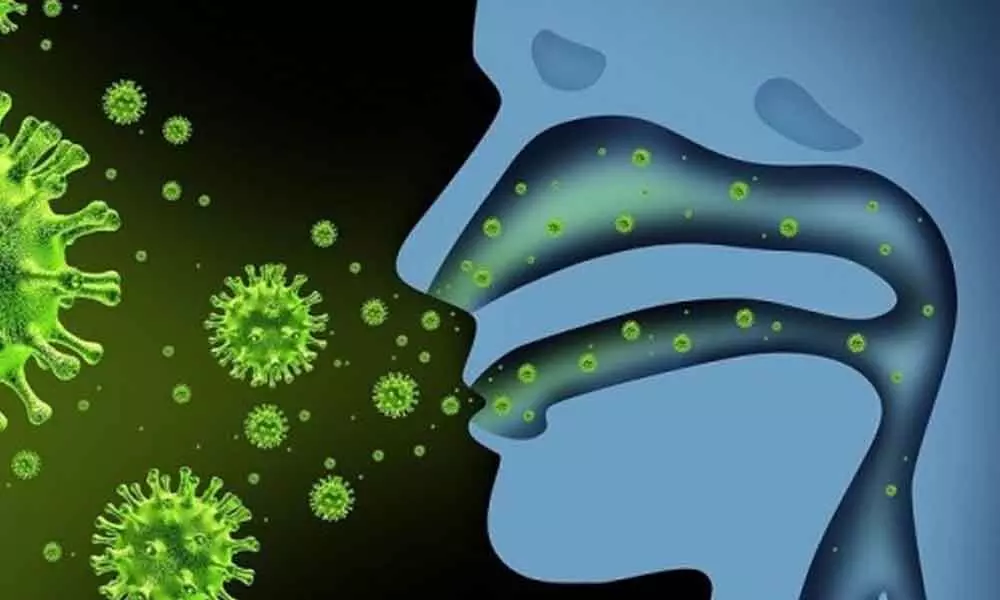Live
- Rekhachithram Review: An inventive thriller that blends nostalgia and mystery
- India Open 2025: Indian challenge ends as Satwik-Chirag go down in semi-finals
- Israel intercepts missile fired from Yemen toward Red Sea's Eilat
- Pravinkoodu Shappu Review: Pravinkoodu Shappu impresses with its visuals and performances but doesn't fully fulfill its potential
- Do not breach party discipline, No loose talk about party positions -Bhandari
- 'Celebrities and village sarpanch not safe, what about common people': Cong slams MahaYuti govt
- Lebanese President urges Israeli withdrawal from South Lebanon within deadline
- Legacy of NTR Lives On: Tributes Pour in on His 29th Death Anniversary
- 8th International Kite Festival Takes Flight at Mangaluru
- Kho Kho WC: India-W set up final clash vs Nepal with commanding win over South Africa-W
Just In
7 factors that may put people at risk at neighbourhood clinic


Enough has been written on the risk of developing severe Covid-19 in hospital settings but now, researchers have documented seven risk factors associated with a positive corona test at the neighbourhood clinic and primary care facilities, and old age and being male are the two main factors
London : Enough has been written on the risk of developing severe Covid-19 in hospital settings but now, researchers have documented seven risk factors associated with a positive corona test at the neighbourhood clinic and primary care facilities, and old age and being male are the two main factors.
The seven risk factors for Covid-19 are: Older age, being male, deprivation, living in a densely populated area, ethnicity, obesity, and chronic kidney disease, according to the observational study published in The Lancet Infectious Diseases journal.
The study looking into the results from 3,802 people was conducted between January 28 and April 4 using routine electronic health records data from GP practices across England.
"With each day that passes our knowledge of COVID-19 improves.
This analysis of primary care outcomes of individuals testing positive for virus is an important contribution to our wider understanding of how COVID-19 is affecting people of different demographic groups," said study co-author Dr Gayatri Amirthalingam, from Public Health England.
While clear trends have emerged from hospital data for the people with severe symptoms, the risk of infection among the general population remains a grey area.
"It's important to know which groups in the wider community are most at risk of infection so that we can better understand SARS-CoV-2 transmission and how to prevent new cases," explained Professor Simon de Lusignan from the University of Oxford, and Director of the Royal College of GPs Surveillance Centre, UK,
The authors note that other socio-economic factors, which were not measured in this study, may also be linked with SARS-CoV-2 infection, such as employment in high risk jobs, education, income, and differences in access to healthcare and testing among ethnic groups. Further research is needed to understand these associations, they noted.
Hospital-based studies have reported that being older, male, and having underlying health conditions such as hypertension and diabetes, are associated with having more severe complications of COVID-19.
The new analysis identifies that some of these factors are also associated with testing positive for SARS-CoV-2 virus. However, there were some notable differences.
For example, most underlying health conditions did not significantly increase susceptibility to infection and the analysis found a link between smoking and lower likelihood of a positive test result.
The authors believe this is due to confounding factors, rather than indicating a protective effect, and they warn that the result should not encourage people to continue or take up smoking.
"This result does not indicate that smoking protects against infection, and there are many potential alternative explanations - such as smoking hampering the sensitivity of the SARS-CoV-2 test, or people who smoke being more likely to have an ongoing cough so being more likely to be tested despite not having the virus," warned professor de Lusignan.
"There is potential for smoking to increase the severity of COVID-19 disease, and so our findings should not be used to conclude that smoking prevents SARS-CoV-2 infection, or to encourage ongoing smoking".
Among adults, those aged 40 to 64 years were at the greatest risk of testing positive for SARS-CoV-2, compared with children aged up to 17 years. Among 1,612 men, 18.4 per cent tested positive, compared with 13.3 per cent of women.
People in urban areas were more at risk than those in rural areas. Of 1,816 people tested in urban areas, 26.2 per cent tested positive, while in rural areas 5.6 per cent tested positive.
The authors caution that some of the findings may reflect selection bias, as the study only included people who had a test for SARS-CoV-2 performed through routine NHS services.
They suggest that a larger population survey is urgently needed to confirm which groups are most at risk.

© 2025 Hyderabad Media House Limited/The Hans India. All rights reserved. Powered by hocalwire.com






